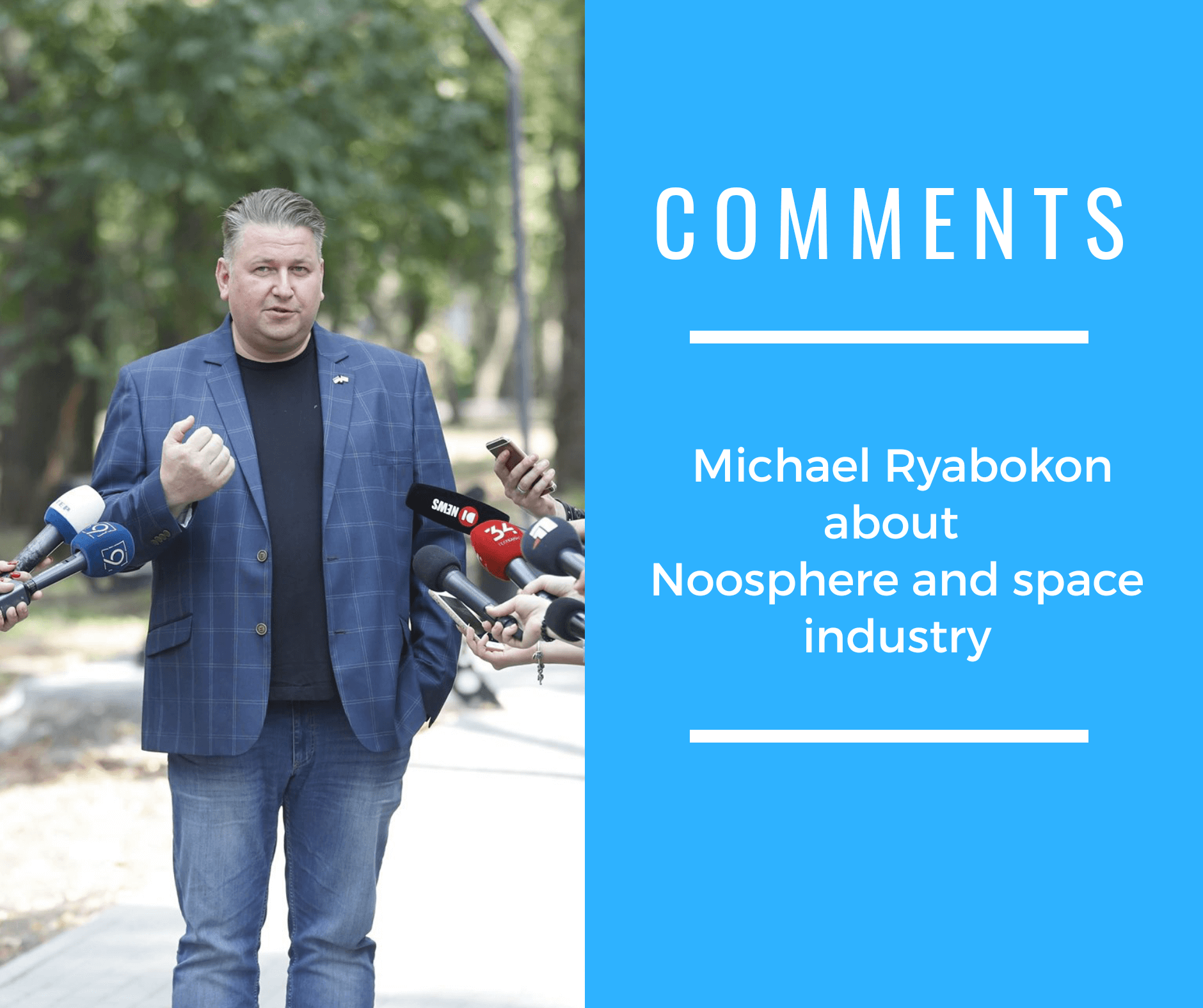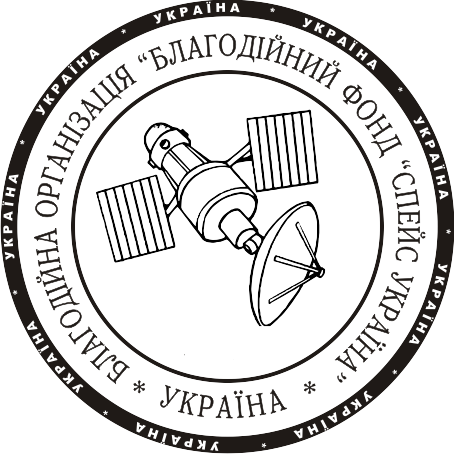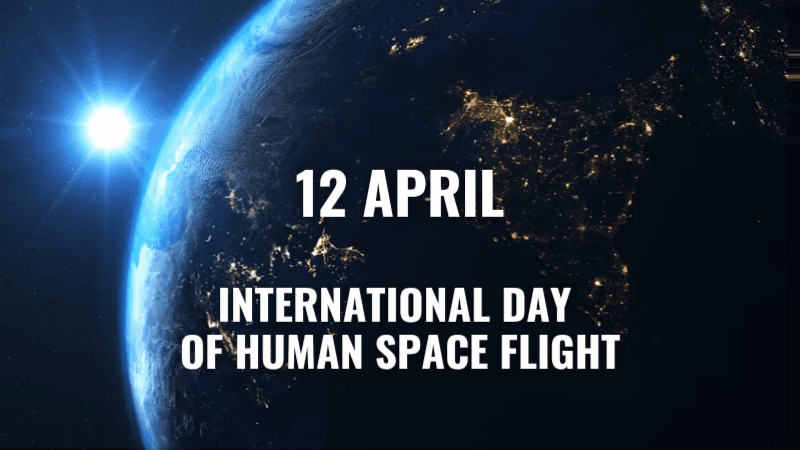Michael Ryabokon – co-founder and headmen of Association Noosphere.
- Noosphere, Firefly, Firefly Aerospace, people get confused what is what. YUZHMASH has work contracts with three companies from the Noosphere group, none of which is mentioned in the above list. Tell us about the structure of the Noosphere group, what place Ukrainian divisions take in it?
Noosphere is a non-profit public organization whose mission is to create an ecosystem in Ukraine favorable for the emergence of engineering start-ups. Such an ambitious goal involves the development of the STEM movement, the creation of a community of engineers with a different focus. The organization is financed by dues from sponsors / partner companies, including space companies, but not only from them. A significant segment also belongs to digital economy companies (marketing, big data processing systems, consumer Internet, financial services). Moreover, today we are open to cooperation with any non-political organizations that share our values and interests, regardless of their field of activity.
However, space companies are the majority of Noosphere patrons and therefore in the Noosphere initiatives (hackathons, conferences and other events) there is a noticeable “imbalance” in the space-related issues. To be fair, this also meets modern trends, the space topic is trending all over the world. If we talk about sponsoring companies from the space sector, then some of them have a loud brand and a solid history, like Firefly Aerospace and EOS DA, others are less public, but no less active (in fact, those that conclude contracts with YUZHMASH).
I think that for Noosphere, the key element is not structure, but philosophy and values, and, therefore, their main host is Max Polyakov, who is the founder of Noospehre. He has a talent for uniting assignees. As a follower of the ideas of the great scientist Vladimir Vernadsky, Dr. Polyakov does not attach any special importance to countries and borders and the noosphere, the sphere of thought, has no borders and national colors. Therefore, there are no special places for any special units. All on a parity basis. Unless, there are much more social projects in Ukraine than in the United States.
In the USA, to a large extent, we have only four initiatives, it is the educational Firefly Academy at the University of Texas at Austin, the annual FIRE rocket model sports competition, sending the students ‘ satellites into space (free of charge) and an international drawing competition sponsored by the Space Foundation.
In Ukraine, we are implementing more than 40 initiatives annually. The most striking projects in the field of space education are the Dual Educational Center founded by NTUU «Kyiv Polytechnic Institute named after Igor Sikorsky», Dniprovsk National University named after Oles Honchar and SO «Association Noosphere», «Engineering School» (technical laboratories in 6 Ukrainian universities), «Student rocket», «Ukrainian Rocket Modeling Sports Federation» (frms.ua), engineering start-up competition «Vernadsky Challenge»(vernadskychallenge.com/ru/) and many others.
The Yuzhmash workers will probably be interested in details about the Student Rocket project, which is being implemented with the support of Yuzhmash and its subdivision, the Pavlograd Mechanical Plant. Within the framework of the project, light ultra-small missile systems are being developed and produced with their own control system, engine, payload and an integral test and flight control system. Successful launches are in progress. The heights of 2 and 4 km were conquered with the launching of the payload and receiving telemetry data from it; this autumn a launch at 40 km is planned.
- What tasks are the companies of the Noosphere group in Ukraine focused on in the medium and long term?
Each Noosphere company Maecenas has its own business objectives with certain deadlines. To a large extent, let’s be frank, Ukraine is not a consumer of the services of the space industry companies. All that companies do here is to create jobs and solve some socially significant issues. For example, thanks to the EOS DA research, the question has been updated that in 30 years the Rivne region may, in principle, be left without a forest (interfax.com.ua/news/general/683759).
If we talk about the tasks of Noosphere, then in the medium term it is the emergence of new successful commercial companies in the Ukrainian aerospace industry and in the long term is to return Ukraine to its former glory as an aerospace giant on the economic map of the world.
- What is your assessment of the state of the space industry in Ukraine, is it viable? In particular, how do you assess the potential of state-owned enterprises in the space industry from the point of view of establishing cooperation with them in the long term?
In my opinion, the basis of any economic industry, especially a science-intensive one, is people. Ukraine’s potential in terms of personnel is excellent. The history of the development of the aerospace industry in Ukraine confirms this. But we must admit that the world of technology is developing and Ukraine, in some ways, has lost a good 30 years, other issues were a priority, like any other state at the stage of formation.
I am not a supporter of any particular business ownership. There are state-owned enterprises, like YUZHMASH, with which it is easy and productive to work, and there are private companies with which synergy does not add up. But we have to admit that world practice follows the path of corporate development of the economy without the active participation of the state. There should be state supervision, this is unconditional. But whether state-owned enterprises are needed in the form in which they operate now is a question to which world practice (ESA, NASA) gives an unambiguous answer – no longer.
In fact, all of our space industry patrons are supporters of the NewSpace movement, which advocates for the right of private companies to work in the space industry. But this does not at all exclude the possibility of cooperation. Collaborations are possible and necessary! Synergy is always useful.
- You are quite familiar with the current competencies and capabilities of YUZHMASH. Which of them is of interest to Noosphere? In what current and promising Noosphere projects do you see YUZHMASH’s participation and which one?
This question is better answered by specialist engineers. In my subjective opinion, after production re-equipping with modern equipment and training personnel to work with new technologies and materials, new prospects for working with the market will open up for the enterprise. But for this you need to constantly be in touch with the consumer and overtake competitors in technology and quality.
- Now the legislative support of corporatization of state enterprises of the space industry is being prepared. What is your attitude to this issue of corporatization from the point of view of private space business? Do we need it and if yes, why?
As I noted above, I am a supporter of the NewSpace philosophy. Corporatization is vital to effective management and profitability. The role of the state is arbitration, security, protection of the interests of citizens, social projects, but not the commercialization of its activities.
The state is not about profit. The planned economy does not work, the market is changing every day more and more rapidly, the digital era is in the yard, and the state, whatever one may say, is bureaucracy. Render unto Caesar the things which are Caesar’s, and for the space industry – commercialization. After all, this is an unhealthy situation when enterprises that should be profitable (profit is, in principle, the only goal of any commercial organization), are waiting for state subsidies for salaries. All right, subsidies from the owner, for example, in order to quickly overtake and overtake companies from other countries in some area, but completely and completely become in line with other unprofitable social projects … This is no longer about business and not about the economy. And then it is not worth saying that we are participants in the global commercial market for the space industry. This, at the very least, sounds ridiculous.
Of course, the issue of privatization must be approached carefully and deliberately, but it is not worth delaying either, there is a risk that we will lag behind the players at the global level so that there will be nothing to corporate or privatize.



